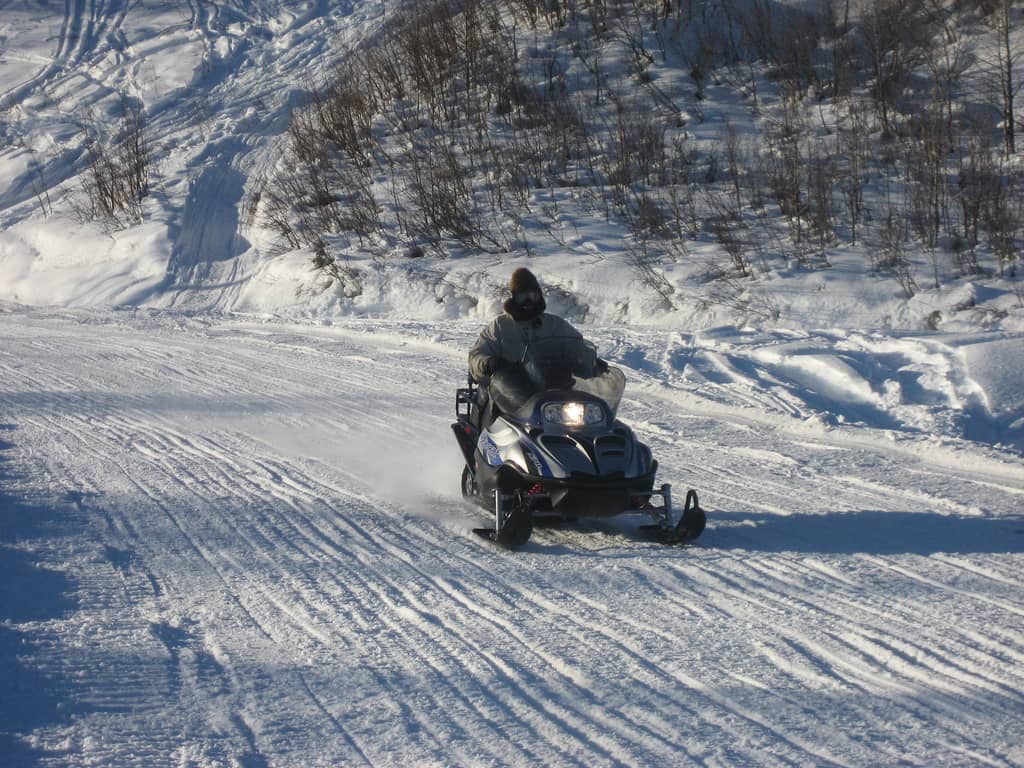Two Lost Trappers Found Alive, Set Fire to Snowmobile for Warmth
OutdoorHub Reporters 12.18.13

A married couple near Cantwell, Alaska was rescued last week after state wildlife troopers found the two separated and lost near Denali National Park. According to the Alaska Dispatch, a family member called authorities regarding the couple, who had been missing for some time.
Alaska wildlife trooper James Ellison gathered a group of volunteers and struck out from Cantwell, first encountering Vivian Mayo, 57, about a mile away from her cabin and suffering from severe hypothermia. Officials believe she decided to go for help after her husband Scott Mayo, 61, was overdue checking on a trap line. Driving in rough weather conditions and temperatures well below zero, Vivian Mayo’s snowmobile soon broke down and left her stranded. Ellison found evidence that Mayo had attempted to set fire to her snowmobile in order to stay warm.
The rescue group transported Mayo back to the cabin and alerted the Rescue Coordination Center in Anchorage. Ellison later went back to search for Mayo’s husband and found tracks not far from the cabin. Following the tracks, Ellison discovered Scott Mayo nearly four hours after the rescue of his wife. Remarkably, the trapper did not seem to be injured or suffering ill effects from the bitter cold. Rescue workers found Mayo huddled over a signal fire and transported him back to his cabin by helicopter. There, after a brief reunion, the couple was flown to an Anchorage hospital.
Officials have not yet released how far Scott Mayo was from his cabin, although it has been reported that the trap line he was checking was five miles out. The Associated Press reported that Mayo was already into his fourth night in the wilderness when rescuers found him.
“I was just going to be gone for three hours,” he told the Fairbanks Daily News-Miner. “It was like that TV show, Gilligan’s Island, where they go out on a three-hour tour and end up stranded on an island for years.”
Fortunately, Mayo was well-equipped for an extended stay. In addition to his snowmobile, Mayo had a plastic otter tub sled, tarp, and propane heater. Mayo combined the sled and tarp as a makeshift shelter and sleeping bag, while the heater kept him warm. In addition, Mayo had a chainsaw and other tools that made it easy for him to build signal fires.
Vivian Mayo’s experience in the wilderness was considerably more dangerous. When her snowmobile stopped, she was only equipped with the clothes on her back, some blankets, and her small dog. Mayo later said she had set fire to the plastic top of the snowmobile as well as some clothes in order to stay warm. At some point, the gas tank exploded.
The couple’s snowmobiles carried a limited amount of food, but Mayo was unable to heat up the frozen meat that her vehicle carried. Instead, she relied on crackers and snow water for the three days she was trapped in the wilderness.
Mayo later claimed that she saw a pack of wolves circling around the snowmobile, but rescue workers did not find tracks. Regardless, the couple is relieved to have survived their experience.
“I made some decision to survive that a person in a hallucinogenic state from hypothermia wouldn’t have made to survive,” Vivian Mayo said.
The couple was shortly released from the hospital without any permanent injuries.

